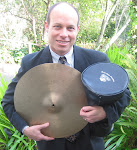 |
| John Dewey |
The classics of Western philosophy and literature amount to a great debate on the perennial questions. In the end, the study of the seminal works of Western civilization is … a case for philosophy and for thoughtfulness….The West is the most self-critical of cultures. Reason is exalted and reason leads to a look, a second look, and, where necessary, readjustment, redefinition, and change. It is one of the distinguishing features of Western civilization, in fact, that it has engaged in this dialogue, self-examination, and correction over the centuries (pp.173-174).
Robert Hutchins (1953) defends these “seminal works of Western civilization” not simply because these works promote reason and powers of judgement over irrationality and one-sidedness but because studying them makes people morally better. Hutchins states that the “aim of an educational system…is to improve man as man” (P. 11) through the teaching of moral virtues. He does not reveal a Western canon but would probably include The Bible, writings of Greek philosophers such as Socrates, Plato and Aristotle, and the later Skeptics, Cynics, Epicureans, and Stoics. The great Jewish, Christian, and Muslim philosophers would also be on the list. He would also include Western economists, psychologists, sociologists, historians, political scientists, writers and artists, too many to catalog here. All of these great thinkers thought logically and critically, basing their ideas on values, on absolute values.
Cultural relativists challenge Hutchins’ aim of an educational system. If values are relative or not important, a good person yesterday may not be a good person today. The relativist does not think that goodness is an absolute but is dependent on culture and the historical situation. Even more extreme, some cultural relativists would ask, “Who cares if someone is good. All that matters is that she is useful to the State.” John Dewey (1938) is more interested in effective classroom technique than debating whether values are absolute. Therefore he would not necessarily be opposed to Hutchins’ views, especially if students were interested in learning about good values. The “static aims and materials” (P.5) that Dewey rails about could apply to the pedantic memorization of Latin grammar or some other ineffective and boring pedagogy. Dewey is not necessarily against the learning of useful classic works simply because the authors died a long time ago. He is against outmoded, traditional pedagogy. Learning must be presented in a palatable fashion, connected to the lives of the students. A student can benefit from improved pedagogy while studying Greek philosophy. Dewey and Hutchins are not opposed to each other’s views.
Antonio Darder (1991), not John Dewey, is a real cultural relativist and true critic of Hutchins and teaching the Western canon. Drawing from the writings of Pablo Freire, Darder states that
since knowledge is socially constructed, culturally mediated, and historically situated, dominant discourses function to determine what is relegated to the arenas of truth and relevancy at any given moment in time. Thus…[critical educators] hold a view of truth as relational, in that statements considered true are seen as arising within a particular context, based on the relations of power operative in a society, discipline, or institution (P.92).
Simply stated, Darder states that there is no absolute truth, and the ruling class defines knowledge in such a way to continue its oppression of the poor, women and minorities. Darder’s arguments in favor of relative truth appear correct at first glance. However, neither the premises of his argument nor the conclusion of his thesis make sense.
Knowledge is not dependent on place, culture, or historical situation. Water is composed of hydrogen and oxygen, whether one is testing the water of the San Francisco Bay or the Red Sea. The laws of chemistry or physics are not dependent on culture. Additionally, knowledge, even of the social sciences, is not “historically situated.” Does anyone believe that the Ten Commandments are no longer valid since they were written 3,000 years ago? Does the Iliad still speak to us, even though we live in a postmodern, urban culture? These books tell us that murder is evil and friendship is virtuous. Heroism is a virtue. The ideas in these books resonate in us because the moral teachings are valuable in our day as well. The ancient Greek virtues are absolute and not dependent on time or place. Darder’s Marxist conclusion, that education merely another type of oppression is also invalid. The educated know how to control their emotions. Only the educated know how to be a good, virtuous, moral person. The educated know the value of freedom. Those who have had a Western education have control over their inner and outer lives.




Great article! But, "Only the educated know how to be a good, virtuous, moral person" is a leap. There are many uneducated people who have been and are gifted with immense "EQ;" emotional intelligence that surpasses many others in integrity. The soul knows if it is honored, no matter what formal training one has absorbed.
ReplyDeleteSuds:
ReplyDeleteYes, Jean Jacques Rousseau and many humanistic psychologists would agree with you even though I would not. Thanks for reading and replying!
A followup - what does it mean to be good, virtuous, and moral?
ReplyDeleteWell, that's a great question! In addition to the names mentioned in the above article, Micah, Isaiah, Moses, Rashi, Jesus, Augustine of Hippo, Thomas Aquinas, St. Anselm, Empedocles, Protagoras, Socrates, Plato, Aristotle, Homer, Pyrrho, Antisthenes, Diogenes, Epicurus, Zeno of Citium, Philo, Plotinus, Hobbes, Locke, Hume, Mill, Kant, Goethe, Shakespeare, Nietzsche, Skinner, and Rogers have an opinion on goodness, virtue, and morality. I personally love the Biblical Prophets and the Chassam Sofer. I'm sure you have your favorites too.
ReplyDeleteThe short answer: Leviticus 19:18
ReplyDelete